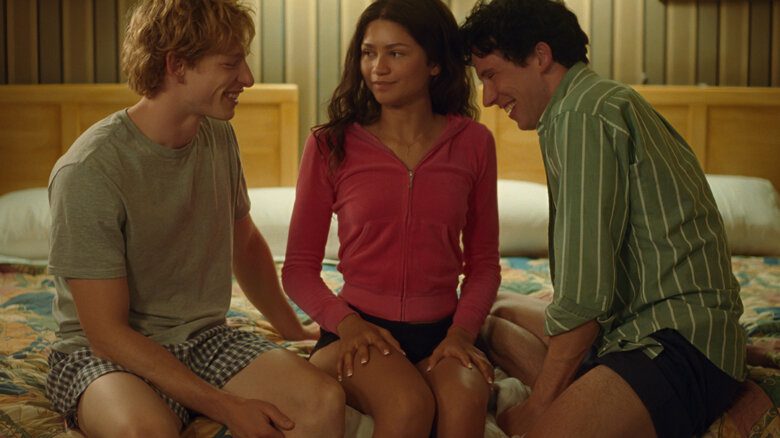A few Fridays ago, I swallowed my pride and decided, despite the handicap of two left feet, a serious case of social anxiety, and a thin sheen of nervous sweat, I was going to go dancing.
A friend of mine had invited me to this month’s Guerilla Gayfare Take Over, a event aiming is to improve queer visibility by taking over a “straight” bar once a month. November’s unsuspecting target? The Great Canadian Cabin on Dalhousie St.
Never having been to a takeover or to the Cabin for that matter — sorry, have we met? I just moved here — I was ushered along with the hoots and cheers of a gaggle of delightful lesbians who assured me I was in for a wicked good time.
Inside, much to my amazement, was Queertopia. Hundreds of queers had crammed themselves into this space, usually reserved for use as a heterosexual meat market. Gay boys dancing, dykes chatting, queers laughing, drinking and generally have a good time. The staff were wonderful, completely welcoming despite our militant take over and displacement of their usual Friday night frats.
I was having a great time, and I was very impressed. As a community, we had managed to make our presence known in a peaceful manner. And the rest of the world seemed to be cool with that.
Or so I thought. You may wish to cue ominous music at this point.
Becoming separated from my group, I decided to leave early. My friends and I were planning on a rendezvous in an hour, so I wasn’t worried. Stepping outside, I was greeted with a massive line up waiting to get into the bar. Standing a little aside from the line was a troop of perhaps a half-dozen or so young men, 18 to 25, milling about like hungry wolves. Hungry wolves with red-rimmed eyes and beer on their breath.
“Hey, hey! You might as well call this an fucking queer bar!” one was shouting, “Fucking queers, fucking queers taking over our fucking bar. Motherfucking faggots!”
And then to me:
“Hey, girlie, check out all these fags? Is it fag city in there or what!”
“I’m a fag,” I said, pointedly. I was looking about rather desperately for my friends now, but they were nowhere in sight, “Now please excuse me?”
Apparently, please and excuse me are not words acknowledged by drunken frat boys, because he only stepped closer, “You’re a fag? A queer? No fucking way! You don’t look like an fucking queer. What the fuck! We can’t even tell you fucking queers from the straights anymore! Fucking queers!”
I must confess. At this point some choice and not particularly clever, expletive filled phrases unfit for publication left my lips.
When I met up with my friends at the bar, I discovered several members of my group had been harassed as well. I was appalled. I had seen this sort of behaviour in my hometown (Belleville) as small and blue-collar as it was, but I had not expected it here, from people my own age, people I might even go to school with.
These people didn’t have any religious affiliations, any moral issue with us. These people were angry simple because they didn’t like us, because we, as the queer community, had decided to come out, loud, proud and en masse to “their” bar. The queer community had stepped out for the evening, into the night, where we could be seen and heard, our presence felt, and these queer-hating bigots did not like it one bit. For one of the first times in my short life, I was afraid, however temporarily, for my personal safety because I’m queer.
That night, I took the longer route home, so that I wouldn’t have to pass the Cabin and whoever was still lurking about outside.
As a community, and as a young queer who came of age when people debated the right to gay and lesbian adoption — as opposed to the right to be gay or lesbian — I had been under the mistaken impression that the war was pretty much over. I assumed that it was just a matter of time, of social evolution, until we were as much a part of the community as everyone else. There will always be people who dislike us — religious and moral affiliates, traditionalists — but it seemed to me, coming to this city with its gay bars and rainbow stickers and Pride parades, that this was the aftermath and general acceptance had been had.
What I didn’t understand was our acceptance is conditional. Conditional on us remaining on “our” side of the tracks in public, in “our” part of town, in “our” bars. I didn’t understand that people expect us to be out of sight and out of mind. We can go whereever we please, but we can only “be queer” in environments designated as such.
Segregated.
Which is why, next Guerilla Gayfare Take Over Dec 14, location as yet to be announced and top-secret (psst, Facebook), I plan on going.
Only by exposure can we make people aware of us, whether they want to be aware or not. This doesn’t mean dressing in rainbow pants, shaving your head and wearing “dyke-boots” or making out with your same-sex partner gratuitously in public (or, at least, it doesn’t always mean that). It often means getting in “their” space and saying, “I’m queer. Do you have a problem?”
 Why you can trust Xtra
Why you can trust Xtra


